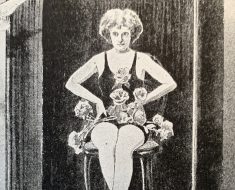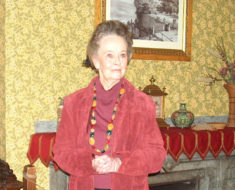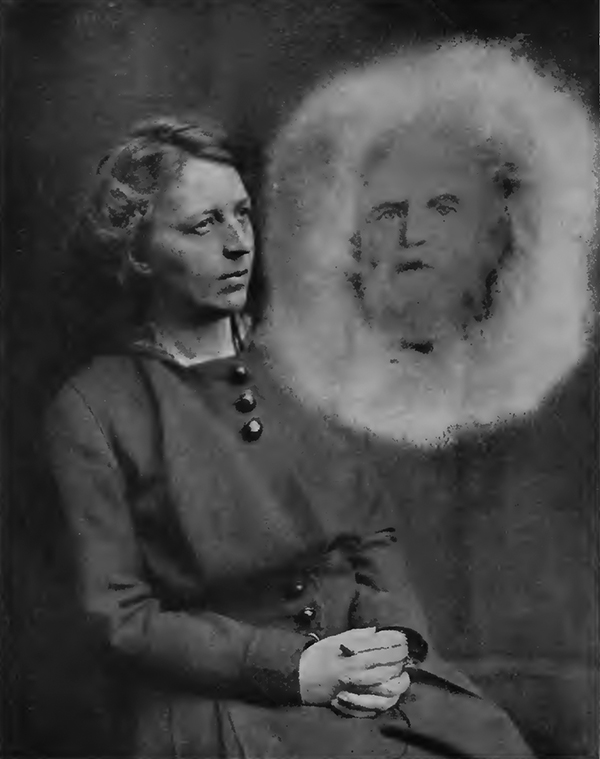
William T. Stead was a Victorian-era newspaper editor and journalist who got swept up in the London Spiritualism scene in the 1890s. But he didn’t just attend séances and report about his experiences. Stead discovered he had his own psychic abilities. He could receive direct messages from the dead through his hand—a process called automatic writing.
His main contact was Julia A. Ames, an American journalist he’d befriended years earlier, but who had died on December 12, 1891. Long before her passing, she and a lifelong friend, Ellen, agreed that whoever went to the grave first would send messages to the other from beyond. Sure enough, Ellen claimed to have seen apparitions of Julia standing near her bedside. “I know it was Julia, and she has come back to me as she promised,” Ellen told Stead. “But I could not hear her speak, and I cannot bear to think that she may have come back with a message for me, and yet I could not hear what she had to say.”
Fortunately for Ellen and Julia, Stead was ready to help with his newfound automatic writing skills. “I offer, in case she were willing and able to use my hand as her own, to allow Julia to write what message she pleased by that means,” Stead explained in the introduction to his book, After Death or Letters From Julia.
Julia took him up on the offer and had plenty to say. “Sitting alone with a tranquil mind, I consciously placed my righthand, with the pen held in the ordinary way, at the disposal of Julia, and watched with keen and skeptical interest to see what it would write,” Stead added.
The first batch of messages Stead received were for Ellen, but later messages were meant for publication to broader audiences. One of Julia’s descriptions of the afterlife follows:
All is so new, and there are such unexpected samenesses as well as differences. When, for instance, we wake into the new life we are still in the same world. There are all the familiar things around us— the walls, the pictures, the window, the bed, and the only new things is your own body out of which you stand and wonder how it can be that it is there, and that it is no longer you. And then you begin clearly to understand what has happened. It is very much like experiences you have in dreams, which, after all, are often due to the same cause, the conscious soul leaving the physical frame, which, however, remains breathing. The first thing you notice that is not the same is the Angel. You are the same. I mean that there is no break in your consciousness, your memory, your sex. I was woman in my bodily life, and I am woman still. There is no change there. But you are in a manner different.
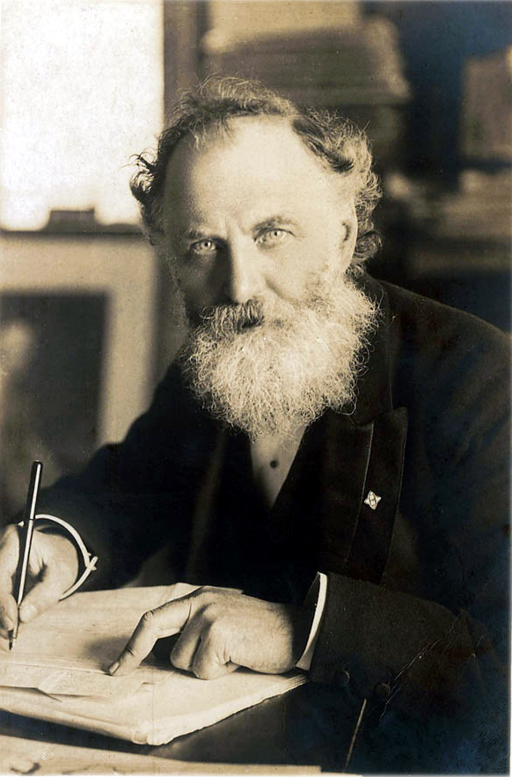
According to Stead’s daughter, Estella, and her medium Pardoe Woodman, the journalist and automatic writer’s adventures in Spiritualism continued when he took his own trip beyond the veil. Stead’s journey began when a journey to the United States went unfinished. He was one of the more than 1,500 people who died on the Titanic in 1912. Surviving witnesses said Stead had helped women and children escape and gave away his life jacket.
Several years later, Woodman, an acquaintance of Estella’s, developed a knack for automatic writing and began channeling her father.
“Mr. Woodman never knew my father personally nor has he come into touch with his writing or with his work in any way, and yet the wording and the phrasing of the messages are my father’s, and even the manner of writing is typical of him,” Estella wrote in the preface to The Blue Island: Experiences of a New Arrival Beyond the Veil.
In the first chapter, Stead recounts his experience after the sinking of the Titanic. Here is a portion of what Woodman says he had to say:
The end came and it was all finished with. It was like waiting for a liner to sail; we waited until all were aboard. I mean we waited until the disaster was complete. The saved—saved; the dead—alive. Then in one whole we moved our scene. It was a strange method of traveling for us all, and we were a strange crew, bound for we knew not where. The whole scene was indescribably pathetic. Many, knowing what had occurred, were in agony of doubt as to their people left behind and as to their own future state. What would it hold for them? Would they be taken to see Him? What would their sentence be? Others were almost mental wrecks. They knew nothing, they seemed to be uninterested in everything, their minds were paralysed. A strange crew indeed, of human souls waiting their ratings in the new land.
A matter of a few minutes in time only, and here were hundreds of bodies floating in the water—dead—hundreds of souls carried through the air, alive; very much alive, some were. Many, realising their death had come, were enraged at their own powerlessness to save their valuables. They fought to save what they had on earth prized so much.
The scene on the boat at the time of striking was not pleasant, but it was as nothing to the scene among the poor souls newly thrust out of their bodies, all unwillingly. It was both heartbreaking and repellent. And thus we waited—waited until all were collected, until all was ready, and then we moved our scene to a different land.
It was a curious journey that. Far more strange than anything I had anticipated. We seemed to rise vertically into the air at terrific speed. As a whole we moved, as if we were on a very large platform, and this was hurled into the air with gigantic strength and speed, yet there was no feeling of insecurity. . . . We were quite steady. I cannot tell how long our journey lasted, nor how far from the earth we were when we arrived, but it was a gloriously beautiful arrival. It was like walking from your own English winter gloom into the radiance of an Indian sky. There, all was brightness and beauty. We saw this land far off when we were approaching, and those of us who could understand realised that we were being taken to the place destined for all those people who pass over suddenly — on account of its general appeal. It helps the nerve-racked newcomer to fall into line and regain mental balance very quickly. We arrived feeling, in a sense, proud of ourselves. It was all lightness, brightness. Everything as physical and quite as material in every way as the world we had just finished with.
Read more words from the afterlife from Stead and many others in my upcoming book from Curious Publications, The Talking Dead: A Collection of Messages from Beyond the Veil, 1860s to 1920s.

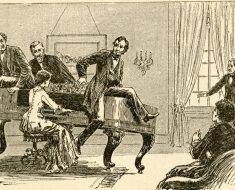
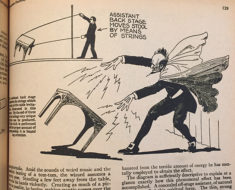
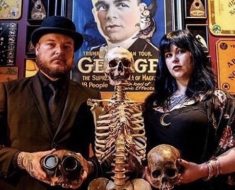
![Lady Wonder - By Francis Wickware (Dr. Rhine and ESP. Life Magazine. April. 15, 1940) [Public domain], via Wikimedia Commons](https://www.weirdhistorian.com/wp-content/uploads/2017/04/Lady_Wonder_Horse-By-Francis-Wickware-Dr.-Rhine-and-ESP.-Life-Magazine.-April.-15-1940-Public-domain-via-Wikimedia-Commons-235x190.png)
